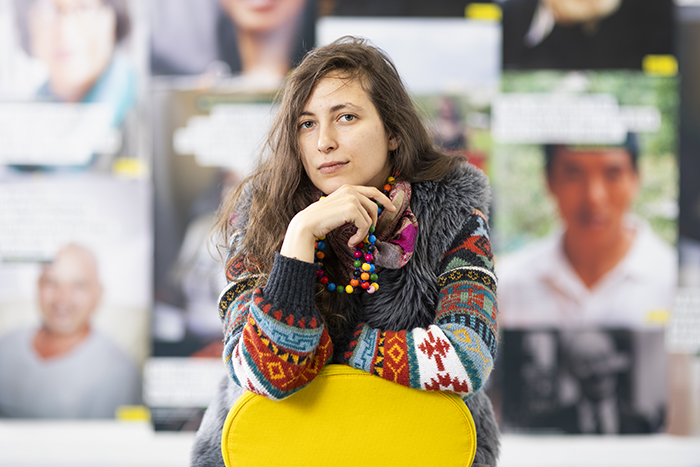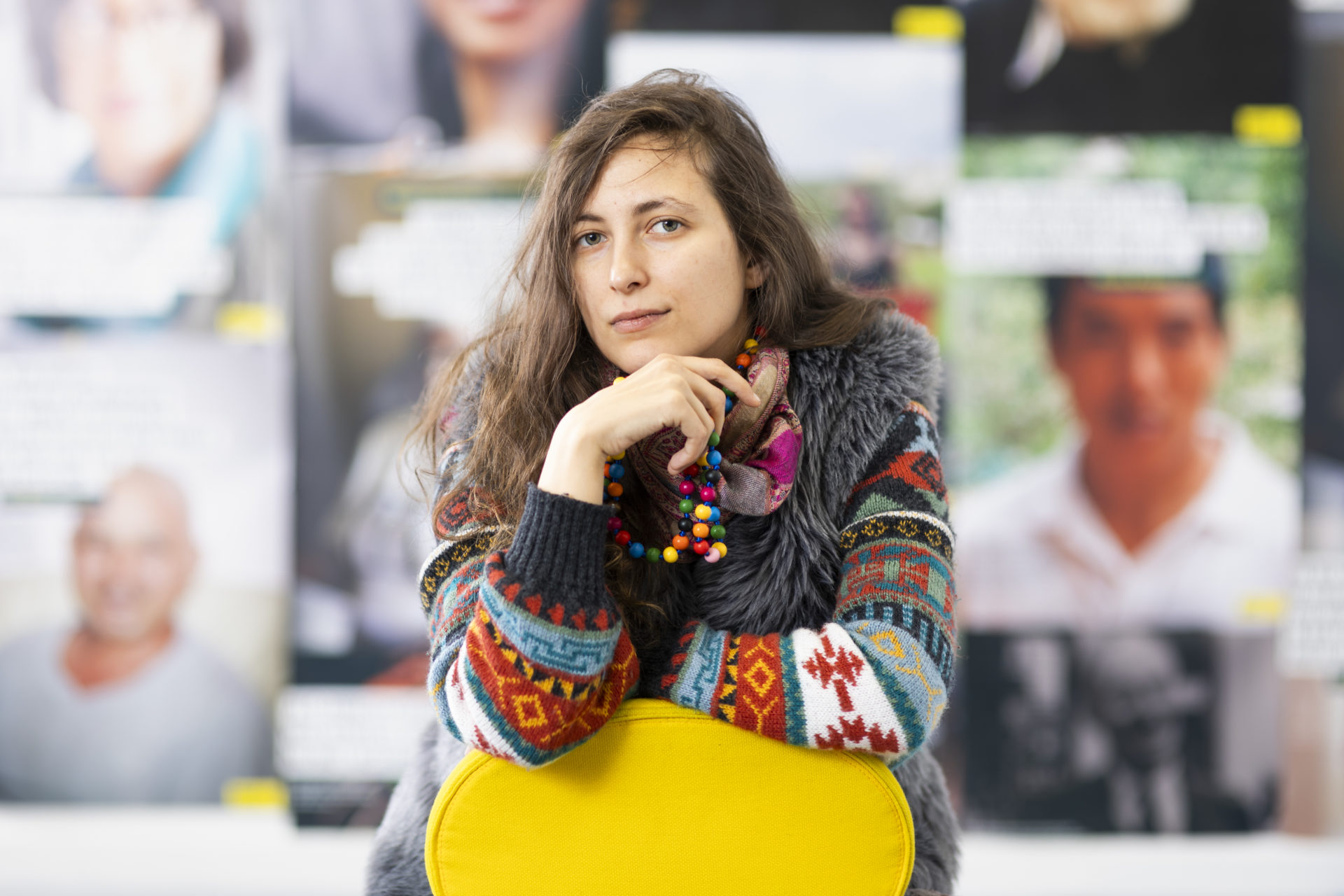Aleksandra Skochilenko was selected to be portrayed in the third edition of the “Portraits of Strength” photo exhibition by Index on Censorship (United Kingdom), a member of the Network of Human Rights Houses. The photograph was taken by Karen Veldkamp in Germany, December 2024.
Why did you become a human rights defender?
I never was a human rights defender, but I became one during my imprisonment because I wasn’t afraid to tell people about the conditions of jail, about what women go through when they are in Russian jail. And, it was just my way of life to tell about this in my pictures, in my articles, in my final words in the court. That’s how, in a way, I became a human rights defender.
What is the nature of your work and what challenges do you face as a Woman Human Rights Defender?
Though I’m not behind bars anymore, I am still trying to speak on behalf of political prisoners who are stuck there in Russia. I also continue to spread information about repression in Russia, about jails, prison colonies and the court system.
I am an artist and a performer. So I turned my imprisonment into a performance called “Imprisonment for Peace”. My aim was to tell people in very precise details, how the Russian repressive machine is working, how courts are working, how jails are working, how investigators are working and how wrong this all is. This is my pacifist statement and my creative will.
The meaning of my work is that I would rather be in jail for seven years than betray my conscience, and my friends in Ukraine.
This performance became a media story about my arrest, my imprisonment and my love with Sonya [Skochilenko’s partner], which is forbidden in Russia today.
Russia is a patriarchal country and women are usually not taken seriously. Not only among Russian politicians but also among [the entire Russian society]. So it was a big challenge for me as a woman to say something that would be taken seriously both in Russia and abroad. And I managed that. My last statement wasn’t called ‘women’s prose’, as it is usually called in Russia, because many texts written by women in Russia are labelled [as such]. But I managed to say something that was serious despite my gender.
What is the current human rights situation in your country?
The current human rights situation in Russia is disastrous. Right now, even 14-year-old kids are becoming political prisoners for their texts on the internet, and for what they’re doing to enlighten people about the war and repression. They can be beaten in their cells by the inmates or mistreated by policemen and prison guards.
Also there are [cases, where] people with disabilities [even those whose health conditions legally prevent them from being imprisoned] are still in jail.
I also came to understand during my years of imprisonment that all the people who [ended up in] jail, somehow are victims of our judicial and political regime because there is no presumption of innocence.
If someone is arrested [for political reasons], they will be charged.
The thing is that every prisoner has no chance to prove their innocence, no matter for what reason he or she was arrested, or was framed. There are rare cases when persons do not receive any sentence at all. Because all these investigations and the work of courts are huge money and if a person could prove innocence, he or she could get compensation, and no one wants to lose this money. That’s the reason why even the simplest cases are investigated for years, because – this is money. Though political sentences are the hardest.
There are also massive human rights violations, especially against minorities. Nowadays, you can be sentenced for five or more years in prison for being homosexual, because the LGBTQ minorities have been called extremist organisations in Russia. There are no conditions for a dignified life for people with disabilities.
What kind of human rights situation in your country would you like to see in the next 30 years?
Unfortunately, Russia is not my country anymore because I was exchanged in a prisoner swap on 1 August 2024. In Russia, on paper, I’m still in jail. So I cannot go back there.
I would like to see Russia free in the next 30 years. I envision a Russia with a great constitution, I see a Russia that could be a place for everyone – no matter what colour of skin they are, no matter what gender, or whether they are gay or heterosexual.
So I want to see Russia as more humane. I would like to see Russia as a place where people could live long and feel safe.
Can you describe your motivation to be a human rights defender?
I didn’t choose to be a human rights defender. My life and my motivation to be free – made me one. So my motivation is my personal story. My motivation is my life story. My motivation is my constant understanding that I’m here, safe and free. While others are still there – in Russian prisons and in jails all over the world.

About Portraits of Strength
Women human rights defenders (WHRDs) work to protect and advance freedoms while facing discrimination and stereotypes about their role and participation in society.
HRHF seeks to honour and promote independent women human rights defenders and their work through the “Portraits of Strength: Women Defending Human Rights” photo exhibition and highlight the human rights situation in the countries of the Network of Human Rights Houses.
The exhibition, now in its third edition, shares portraits and stories from WHRDs working on a variety of issues including the documentation of human rights violations and alleged war crimes, rule of law, women’s rights, political prisoners, freedom of expression, and more.
Find out more here.





